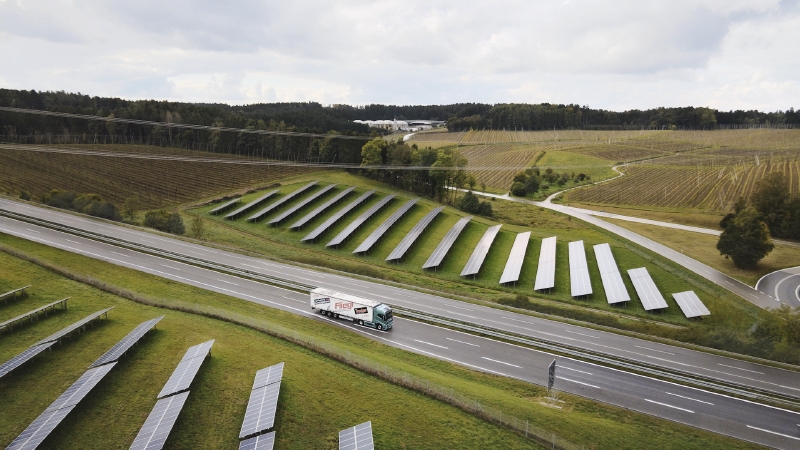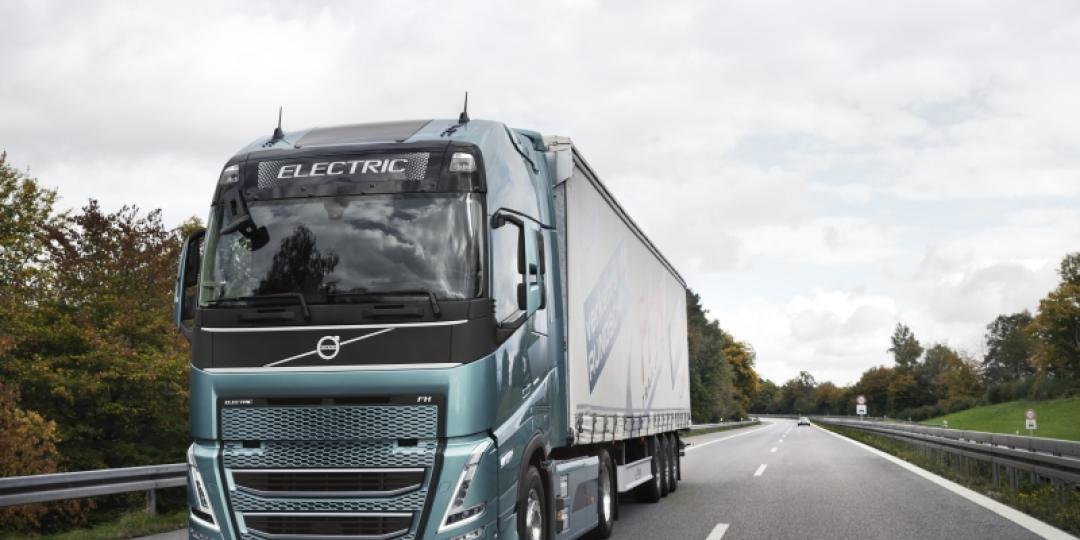Now the first independent energy efficiency test with a fully loaded heavy-duty electric Volvo truck has been done in Germany. The electric truck exceeded its official range and used 50% less energy than its diesel counterpart.
Watch Volvo FH Electric being tested here
The tested truck was a Volvo FH Electric, a zero-exhaust emission vehicle with 490 kW of continuous power and a gross combination weight of 40 tonnes. The German trucking journalist Jan Burgdorf tested the truck on the Green Truck Route, a 343 km long route that includes a variety of motorways, hilly terrains, and tighter roads that is used for testing different manufacturer's trucks in a wide range of conditions.
“I have to say, when driving this truck, it is as agile, or even more agile, than a diesel truck. Drivers will be very surprised about how easy it is to drive, how quiet it is, and how well it responds. There are no vibrations whatsoever,” says Jan Burgdorf.
The Volvo FH Electric kept an average speed of 80 km/h over the whole route, which was on par with the Volvo FH with a diesel engine equipped with a diesel engine and the fuel efficiency package I-Save. Based on the energy consumption of only 1,1 kWh/km, the electric truck had a total range of 345 km on one charge.

“These test results show that it is possible to drive up to 500 km during a regular work-day, with a short stop for charging, for example during lunch time,” explains Tobias Bergman, Press Test Director at Volvo Trucks.
In the Green Truck Route tests, the Volvo FH Electric used 50% less energy than a Volvo FH with a comparable diesel engine.
“The electric driveline is very efficient, making the all-electric truck a very powerful tool for reducing CO2 emissions,” comments Tobias Bergman.
Volvo Trucks goal is that electric vehicles will account for half of its truck sales in 2030 and in 2040, 100% well-to-wheel based CO2-reduction for new trucks sold.
“We are committed to the Paris Agreement on climate change. Science-based targets have been set and we are taking action to fast-forward the development to dramatically lower CO2 emissions related to on-road freight transports. I believe that the broad electric range we already have on the market is very clear proof of that,” concludes Tobias Bergman.
Facts about the test and the truck:
- Gross combination weight: 40 tonnes
- Average speed: 80 km/h
- Energy consumption: 1,1 kWh/km
- Battery capacity: 540 kWh
- Output power: 490 kW continuous power
- Total test track distance: 343 km
- Total range based on one charge: 345 km
The tested Volvo FH Electric can cover up to 500 km during a normal workday if a top-up charge is added, for example during the lunch break.
Volvo Trucks have a range of six all electric trucks designed to cover many different transport assignments. The Volvo FH, FM and FMX Electric models have a GCW of up to 44 tonnes. Sales are ongoing in Europe and production will start in the second half of 2022.
Serial production in Europe of the Volvo FL and FE Electric, for city distribution and refuse handling, started in 2019. Production of the Volvo VNR Electric for North America began in 2020.
Contact Jan Strandhede, Volvo Trucks, jan.strandhede@volvo.com
















